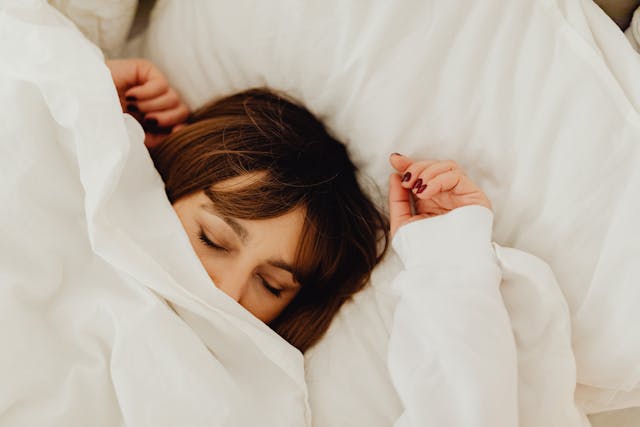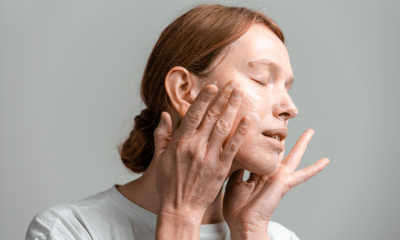Lifestyle
Mouth taping for better sleep: 5 benefits and considerations

Mouth breathing can disrupt healthy sleep. Considering how important getting quality rest is to overall well-being, many health enthusiasts jumped on board when mouth taping became a thing. Preventing the upper and lower lips from moving while sleeping encourages the body to breathe through the nose – a magical solution for mouth breathers who rarely feel rejuvenated despite sleeping like a baby. Is mouth tape really therapeutic – or is it pseudoscience?
Scientifically proven benefits of mouth taping
The health enthusiasts who swear by this trend claim that it can counteract the ill effects of mouth breathing. Some say it can reduce dry mouth, gum disease, bad breath and cavities. Others believe it can reduce sleep-disordered breathing, symptoms of ADHD, cognitive decline, and slow growth in children.
The problem is that these benefits are anecdotal. Researchers have not verified their factuality. There may be some truth behind such claims, otherwise they would not be as sustainable. Yet they remain unfounded until the scientific community finds conclusive evidence.
However, some studies in people with sleep apnea have found that sealing the lips with porous tape can successfully accomplish one thing: helping sleepers snore less, which in turn minimizes fatigue.
Reduced snoring
A 2022 study found that oral-breathing individuals with mild obstructive sleep apnea (OSA) who used 3M tape to close their mouths before hitting the bag saw a 47% improvement in their mean apnea/hypopnea and snoring indices.
The patients experienced almost half as many episodes of slowed, restricted and shallow breathing lasting 10 seconds or longer and moments of no breathing at all. These findings convinced the Taiwanese researchers behind the study to view mouth taping as a viable alternative treatment for OSA patients before resorting to continuous positive airway pressure therapy or going under the knife.
Reduced fatigue
If you have OSA and breathe orally when you fall asleep, you can stop breathing five or more times every hour during sleep due to airway blockage. These breaks deprive your body of oxygen and cause a buildup of carbon dioxide. Your brain detects this and warns you to breathe. You wake up enough to take a few breaths, but not enough to remember anything. If you go through this cycle several times a night, you will feel exhausted in the morning.
Taping your mouth subtly reminds you to inhale nasally and avoid breathing pauses. This increases your chances of getting a good night’s sleep, despite your OSA and harmful habits using electronics too much or eating a large meal before bed.
Critical Considerations Before Taping Your Mouth
Although some researchers recommend treating OSA with mouth taping, healthcare professionals recommend against it ignore it as a treatment for sleep disorders for three reasons.
It fails to address the underlying problem
Applying mouth tape only addresses one of the symptoms of your sleep problem, not the underlying cause. It does nothing to reduce the airway obstruction caused by your OSA. The culprit could be a scalloped tongue, inflamed tonsils, age or gender, as sleep apnea tends affects adults over 65 years of age and men.
Additionally, if you have a stuffy nose, your body may cause you to breathe through your mouth. Closing your mouth instead of relieving your nasal congestion can cause breathing problems and worsen your sleep.
It can cause more problems than it solves
Using tape to close your mouth to get a good shuteye has several drawbacks. The glue can irritate your lips and surrounding areas. About 2%-3% of people may develop allergic contact dermatitis due to this irritant.
Additionally, removing the tape can be painful, especially if you have facial hair. The discomfort that mouth taping brings can ironically disrupt your sleep, defeating its purpose.
Complicating oral breathing while sleeping can cause anxiety, making you feel restless at night and worsening your sleep problems. Some don’t like the idea of hiding their mouths before lulling themselves into dreamland. Such discomfort is justified, because it can make you vomit or choke.
Improperly covering your mouth can endanger your health. There are no official guidelines for doing this, and doctors generally don’t practice it. Most healthcare professionals may refuse to advise you on how to do this.
The downsides of this health trend outweigh the science-based benefits, so think about it carefully.
It has better alternatives
There are healthier and safer ways to reduce your snoring and fatigue. Sleeping on your side, lying in a bed optimized for spinal alignment and pressure point reduction, and wearing nasal strips are promising solutions.
Mouth taping is a plaster solution
The medical community could one day embrace this health trend if enough researchers validate its claims. Don’t hold your breath, though. Most healthcare professionals consider it an inadequate solution to sleep problems at best and a dangerous practice at worst.













